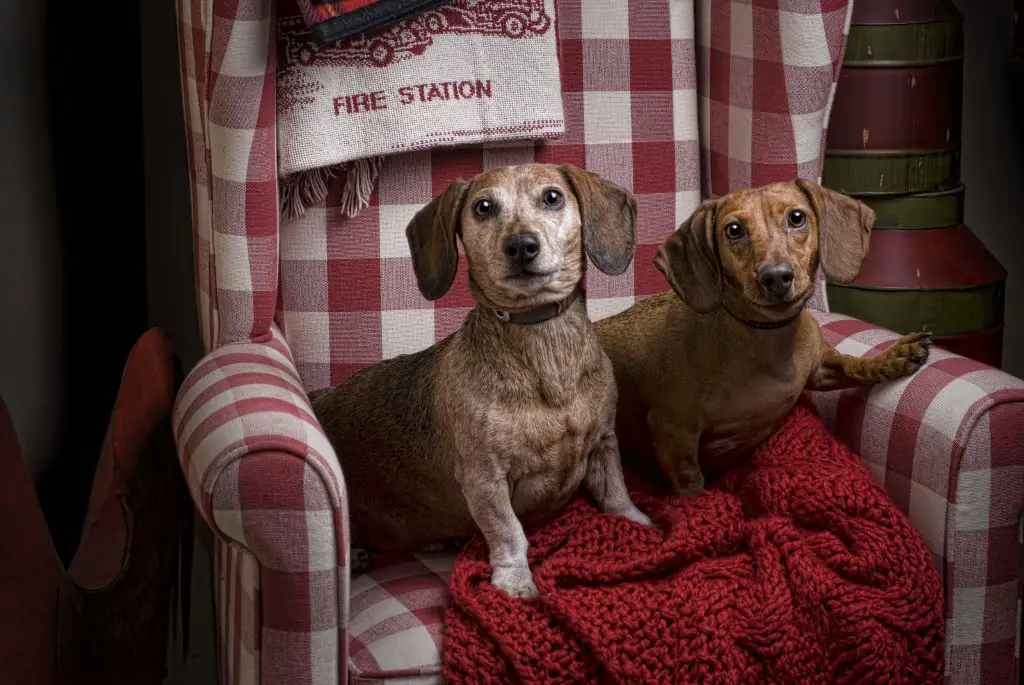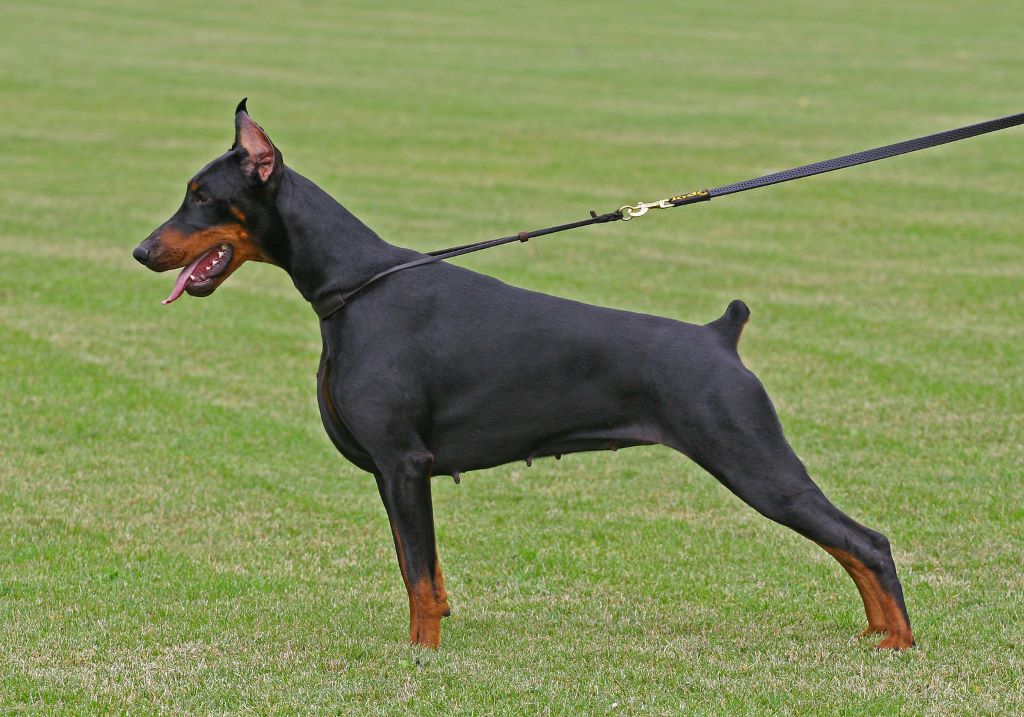Dachshund puppies are adorable, but they can also be quite a handful. If you’re wondering when your dachshund puppy will calm down, you’re not alone. Many new dachshund owners are curious about when they can expect their furry friend to become more manageable.
As with any breed, dachshund puppies will calm down at different rates. However, there are some general guidelines you can follow. By understanding the factors that contribute to a dachshund puppy’s behavior, you can help your pup become a well-behaved adult dog. So, when do dachshund puppies calm down? Let’s explore this topic further.
When Do Dachshund Puppies Calm Down?
If you’re a new dachshund puppy owner, you may be wondering when your furry friend will calm down. Dachshunds are known for their playful and energetic nature, but like all other dogs, they will eventually calm down with age.
Dachshunds start to calm down around one year old, but you may not notice a significant difference until they reach three to five years old. During this time, they will start to settle into their adult personalities and be less active overall. You may find that your dog is more easygoing and less likely to be vocal or challenging when they don’t want to do something.
However, keep in mind that dachshunds are a pretty playful breed and can be surprisingly energetic for their size. So, don’t be surprised if your dachshund continues to be overly excited even in their old age.
There are a few reasons why your dachshund might be taking longer to calm down. Anxiety, overstimulation, lack of exercise, improper training, or matching your energy can all contribute to hyperactivity and prevent your dachshund from calming down.
To help your dachshund calm down, make sure they get enough exercise and mental stimulation. A tired dog is a happy dog, and regular exercise can help reduce anxiety and hyperactivity. Additionally, proper training and behavior modification techniques can help your dachshund learn to relax and calm down in stressful situations.
Understanding Dachshund Puppies
If you’re thinking about bringing a Dachshund puppy into your home, it’s important to understand their breed characteristics, personality traits, and coat type. Here’s what you need to know:
Breed Characteristics
Dachshunds are a small breed of dog that were originally bred in Germany to hunt badgers. They have a long, narrow body and short legs, which makes them well-suited for digging into burrows. Dachshunds come in three coat types: smooth, wirehaired, and longhaired. They also come in two sizes: standard and miniature.
Personality Traits
Dachshunds are known for being loyal, playful, and stubborn. They can be quite vocal and may bark excessively if not properly trained. Dachshunds are also prone to separation anxiety and may become destructive if left alone for long periods of time. It’s important to socialize your Dachshund puppy early on to help them develop good behavior and reduce the risk of aggression.
Factors Affecting Dachshund Puppy Behavior
Dachshund puppies are known for their playful and energetic behavior, but as they grow older, they start to calm down. However, the time it takes for a Dachshund puppy to calm down can vary based on different factors. In this section, we will discuss some of the factors that can affect Dachshund puppy behavior.
Age
Age is one of the most significant factors that affect Dachshund puppy behavior. Generally, Dachshund puppies start to calm down when they reach two years of age. However, the exact time it takes for a Dachshund puppy to calm down can vary from dog to dog.
Energy Level
Dachshunds are known for their high energy levels. If your Dachshund puppy has a lot of energy, they may take longer to calm down. You can help manage your Dachshund’s energy levels by providing them with enough exercise and playtime.
Genetics
Dachshunds are a breed that is prone to certain behavior problems, such as aggression and separation anxiety. These problems can be inherited from their parents. If your Dachshund puppy’s parents had any behavior problems, there is a chance that your puppy may also develop these problems.
Spaying and Neutering
Spaying or neutering your Dachshund puppy can have an impact on their behavior. Spaying or neutering can help reduce aggression and other behavior problems in Dachshunds. However, it is important to note that spaying or neutering should be done at the right age and under the guidance of a veterinarian.
Medication
In some cases, medication may be necessary to manage behavior problems in Dachshund puppies. Medication can help reduce anxiety, aggression, and other behavior problems. However, medication should only be used under the guidance of a veterinarian.
Training Dachshund Puppies
Training your Dachshund puppy is crucial for their well-being and your sanity. Dachshunds are smart dogs, but they can be stubborn and difficult to train. Here are some tips to help you train your Dachshund puppy:
Obedience Training
Obedience training is essential for any dog, but especially for Dachshunds. They are known to be stubborn and independent, so it’s important to establish yourself as the pack leader early on. Start with basic commands such as sit, stay, come, and down. Use positive reinforcement and treats to reward good behavior.
Socialization
Socialization is also crucial for Dachshund puppies. They can be wary of strangers and other dogs, so it’s important to expose them to different people and animals early on. Take your puppy to puppy classes or to the dog park to help them socialize.
Positive Reinforcement
Positive reinforcement is the most effective way to train your Dachshund puppy. Use treats, praise, and affection to reward good behavior. Avoid using punishment or negative reinforcement, as this can harm your puppy’s mental well-being.
Consistent Routine
Dachshunds thrive on routine, so it’s important to establish a consistent schedule for feeding, potty breaks, and training. Stick to a routine as much as possible to help your puppy feel secure and comfortable.
Interactive Dog Toys
Dachshunds are intelligent dogs that need mental stimulation. Interactive dog toys, such as puzzle toys and treat dispensers, can help keep your puppy entertained and mentally stimulated.
Training your Dachshund puppy takes time and patience, but it’s worth it in the end. With consistent training and socialization, your Dachshund will grow up to be a well-behaved and happy dog.
- 【Size】: L9.44" * W9.44"* H1.14" suitable for cats, puppies and small dogs.
- 【Interactive Dog Toys】This is a fun interactive puppy puzzle toy, which can easily become the closest companion and toy for your puppies and cats, and will release pressure for dogs. Find food by sliding parts to improve eating pleasure and IQ.
- 【Slow feeder】This slow feeder encourages pets to eat at a slower speed, helps to slow down the feeding time to help the dog digest, and can provide your dog with a variety of healthy snacks.
- 【Dog toys】No toy is indestructible. Do not leave toys with unsupervised pets. Remove and replace toy if damaged.
- 【Slow Feede toys】 Use this educational game toy to exercise the dog’s brain, which will help meet the dog’s instinct needs, train the pet’s sense of smell, and let the dog enjoy fun feeding when using the nose or paw to move the slider, while providing spirit stimulate.
Managing Dachshund Puppy Behavior
If you’re a new dachshund puppy owner, you may be wondering when your puppy will calm down. While dachshund puppies are known for their playful and energetic personalities, they can be a handful for their owners. Here are some tips to help manage your dachshund puppy’s behavior.
Physical Activity
Dachshund puppies need plenty of physical activity to burn off their excess energy. Regular exercise can also help prevent destructive behavior and promote good health. You should aim to give your puppy at least 30 minutes of exercise each day. This can include walks, playtime, and other activities that get your puppy moving.
Stimulation
Dachshund puppies are intelligent and curious dogs. They need mental stimulation to prevent boredom and destructive behavior. You can provide your puppy with toys, puzzles, and other activities that challenge their minds. You should also spend time playing with your puppy and teaching them new tricks and commands.
Food
Dachshund puppies have specific dietary needs that should be met to promote good health and behavior. You should feed your puppy a high-quality dog food that is formulated for their age and size. You should also avoid overfeeding your puppy, as excess weight can lead to health problems and behavior issues.
Boundaries
Dachshund puppies need clear boundaries to learn what is acceptable behavior. You should establish rules and routines for your puppy and enforce them consistently. This can include rules about where your puppy is allowed to go in your home, what furniture they are allowed on, and what behaviors are not allowed.
Walking
Walking is an important part of your dachshund puppy’s daily routine. It provides exercise, mental stimulation, and socialization opportunities. You should aim to take your puppy for at least two short walks each day. You should also use a leash and harness to keep your puppy safe and under control.
Common Behavioral Issues in Dachshund Puppies
Dachshund puppies are known for their lively and playful nature, but like any other dog breed, they can exhibit some common behavioral issues. Here are some of the most common behavioral issues you may encounter with your Dachshund puppy.
Separation Anxiety
Dachshunds are known to be loyal and loving companions, and they often develop a strong bond with their owners. However, this can also lead to separation anxiety, which is a common behavioral issue in Dachshund puppies. Separation anxiety can cause your puppy to become anxious and stressed when you leave them alone, which can lead to destructive behavior, excessive barking, and even aggression.
To prevent separation anxiety, it is essential to train your Dachshund puppy to be comfortable on their own from a young age. Gradually increasing the time you leave them alone and providing them with toys and treats can also help them feel more relaxed and calm when you are away.
Aggression
Dachshunds are generally friendly and affectionate dogs, but some puppies may exhibit aggressive behavior towards other dogs or people. Aggression can be caused by fear, anxiety, or a lack of socialization, and it can be challenging to control if left unchecked.
To prevent aggression in your Dachshund puppy, it is essential to socialize them from a young age and expose them to different people, animals, and environments. Positive reinforcement training can also help them learn appropriate behavior and reduce their anxiety and fear.
Fear and Shyness
Some Dachshund puppies may exhibit fear and shyness towards new people, animals, or environments. This can be caused by a lack of socialization or negative experiences in the past.
To help your Dachshund puppy overcome their fear and shyness, it is essential to expose them to new people, animals, and environments gradually. Positive reinforcement training can also help them build confidence and trust in you.
Hyperactivity
Dachshund puppies are known for their energy and enthusiasm, but some may exhibit hyperactive behavior that can be challenging to control. Hyperactivity can be caused by a lack of exercise, boredom, or anxiety.
To prevent hyperactivity in your Dachshund puppy, it is essential to provide them with regular exercise and mental stimulation. Training and obedience classes can also help them learn to control their behavior and reduce their anxiety.
Digging
Dachshunds are natural diggers, and some puppies may exhibit excessive digging behavior that can damage your lawn or garden. Digging can be caused by boredom, anxiety, or a lack of exercise.
To prevent excessive digging in your Dachshund puppy, it is essential to provide them with enough exercise and mental stimulation. You can also create a designated digging area for them and provide them with toys and treats to keep them occupied.
Biting
Dachshund puppies may exhibit biting behavior, especially during playtime. Biting can be caused by excitement, fear, or a lack of training.
To prevent biting in your Dachshund puppy, it is essential to train them to control their biting behavior from a young age. Positive reinforcement training can also help them learn appropriate behavior and reduce their anxiety and fear.
Solutions for Dachshund Puppy Behavioral Issues
If you’re struggling with your Dachshund puppy’s behavior, don’t worry, there are solutions. Here are some tips and techniques to help you manage your puppy’s behavior.
Calming Down Techniques
When your Dachshund puppy is feeling anxious or scared, it’s important to help them calm down. One technique you can use is to offer your puppy comfort and safety without cuddling them too much. This will help them feel secure and reduce their anxiety.
Another technique is to provide your puppy with a mild distraction. This could be a toy, a treat, or even a puzzle feeder. These distractions can help redirect their attention and reduce their stress levels.
Proper Training
Proper training is essential for managing your Dachshund puppy’s behavior. Basic obedience training can teach your puppy how to respond to commands like sit, stay, come, and down. It can also help them learn impulse control, which is important when they get excited.
Crate training can also be helpful for Dachshunds who need to calm down. A crate can provide a safe and secure space for your puppy to relax and feel comfortable.
Veterinarian Assistance
If your Dachshund puppy’s behavior is causing you concern, it’s important to consult with your veterinarian. They can help you identify any underlying medical issues that may be contributing to your puppy’s behavior.
They can also provide you with advice on behavior modification techniques and recommend any medications that may be helpful.
Environmental Changes
Environmental changes can also help manage your Dachshund puppy’s behavior. Providing your puppy with plenty of exercise, a consistent schedule, and lots of affection can help reduce their stress levels.
Making changes to their environment, such as reducing noise levels or providing a designated safe space, can also help reduce their anxiety.
Conclusion
It’s important to be patient with your pup. Dachshunds may take more time to calm down than other breeds, but with the right combination of socialization, training, and care, your pup will settle into a more relaxed demeanor.
Alliteration can help you remember the key components: socialization and structure, consistency, and care.
Keep in mind that puppies grow up quickly, so the sooner you start using calming strategies, the better.
With patience, persistence, and plenty of positive reinforcement, you’ll soon have a calmer pup on your hands.










